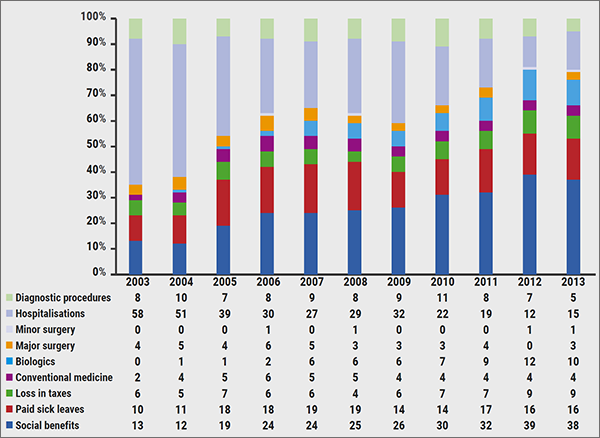"Typically, gastroenterologists have to rely on patient self-reported information about their stool to help determine the cause of their gastrointestinal health issues, which can be very unreliable," Dr. Deborah Fisher of Duke University, in Durham, North Carolina, who worked on the project, said in a news release from Digestive Disease Week (DDW) 2021, where she discussed the project.
"Patients often can't remember what their stool looks like or how often they have a bowel movement, which is part of the standard monitoring process. The Smart Toilet technology will allow us to gather the long-term information needed to make a more accurate and timely diagnosis of chronic gastrointestinal problems," Dr. Fisher added.
The technology being developed can be retrofitted within the pipes of an existing toilet. The stool is imaged automatically outside the purview of the user. The image data is processed by a microcontroller through a machine-learning algorithm that can detect "with good accuracy" stool form (loose, normal, constipated) and the presence of blood, "which are two very important diagnostic parameters," Dr. Sonia Grego, founding director of the Duke Smart Toilet Lab and one of the researchers on the project, told Reuters Health by phone.
Importantly, said Dr. Grego, collecting the data is "computationally efficient. The algorithm does not need big computers to run. It can run on a small device that will be coupled with the hardware that takes the stool image. It's like the Fitbit of toilets."
To develop the Smart Toilet, the researchers analyzed 3,328 unique stool images found online or provided by research participants. All images were reviewed and annotated by gastroenterologists according to the Bristol Stool Scale, a common clinical tool for classifying stool.
The algorithm accurately classified the stool form 85% of the time, and gross blood detection had an accuracy of 76%, demonstrating "proof of concept," Dr. Grego told Reuters Health.
"Once this technology is fully developed, we believe it will be extremely beneficial to both patients and providers, because it will provide objective diagnostic information and early warning of problems," she added.
"We are optimistic about patient willingness to use this technology because it's something that can be installed in their toilet's pipes and doesn't require the patient to do anything other than flush," Dr. Grego said in the news release.
"An IBD flare-up could be diagnosed using the Smart Toilet and the patient's response to treatment could be monitored with the technology. This could be especially useful for patients who live in long-term care facilities who may not be able to report their conditions and could help improve initial diagnosis of acute conditions," Dr. Grego added.
This research was funded by Duke internal funding and philanthropic donations to Duke researchers. Dr. Grego is a co-founder of Coprata, a start-up company formed to commercialize this technology.
SOURCE: https://bit.ly/3w8NrGd Digestive Disease Week 2021, held May 21-23, 2021.
By Megan Brooks
Posted on
Previous Article
« Patients with autoimmune disease may not be fully protected even after second COVID shot Next Article
Systemic right ventricle often not a barrier to successful pregnancy »
« Patients with autoimmune disease may not be fully protected even after second COVID shot Next Article
Systemic right ventricle often not a barrier to successful pregnancy »
Related Articles

May 9, 2019
The costs and benefits of biologicals
© 2024 Medicom Medical Publishers. All rights reserved. Terms and Conditions | Privacy Policy

